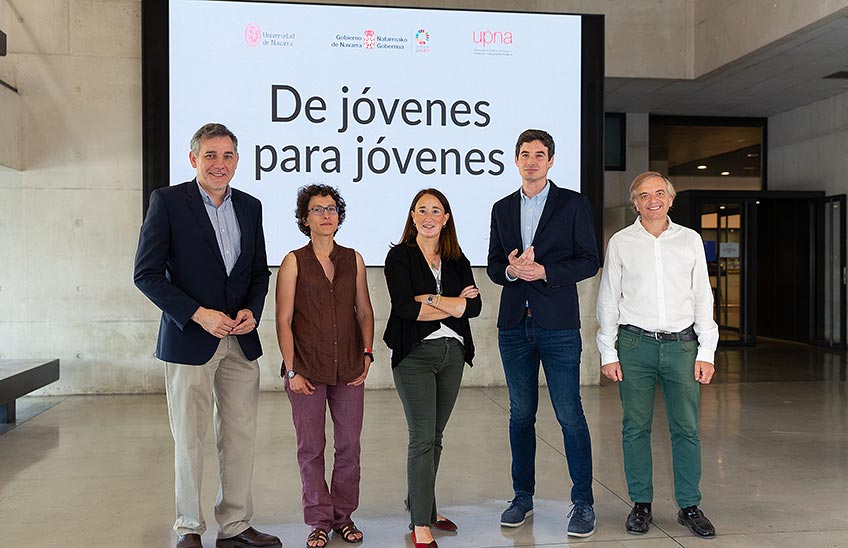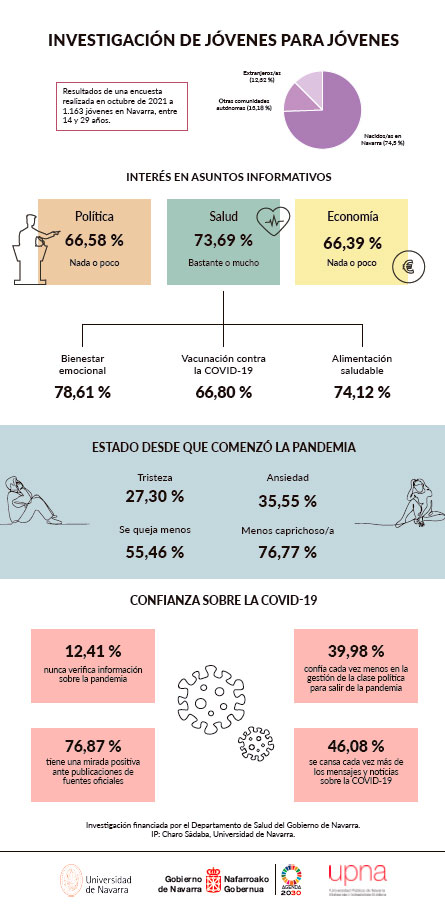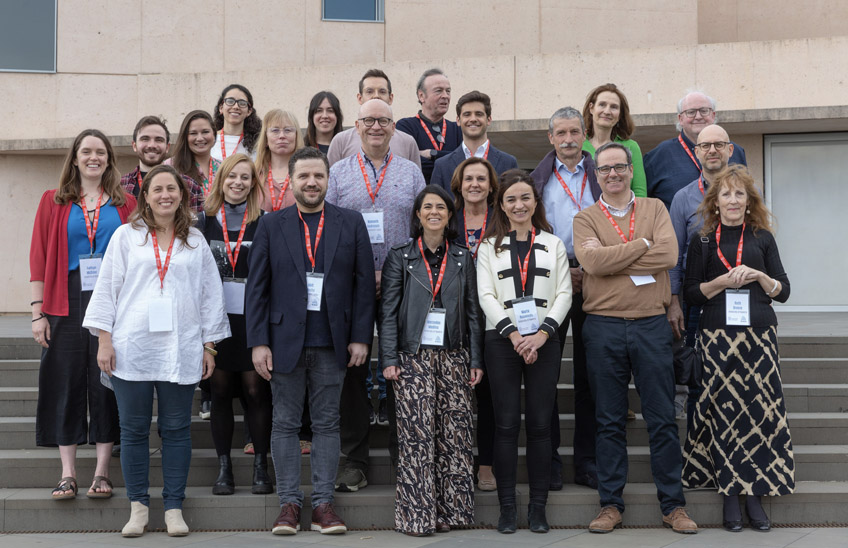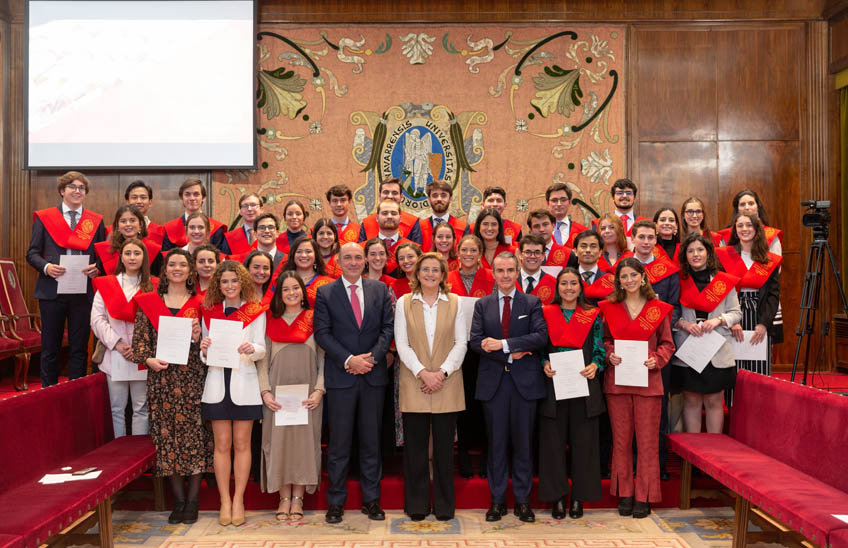More than a third of young people in Navarre do not verify the information they receive on social networks about Covid-19.
The study carried out by the University, the Public University of Navarra and the high school de Salud Pública y Laboral de Navarra, shows that 90% of young people between the ages of 14 and 24 say they have been vaccinated.

FotoManuelCastells/From left to right, Ramón Salaverría, professor at the School of Communication and researcher of project; María Napal, researcher at the Public University of Navarra; Charo Sádaba, dean of the School of Communication at the University of Navarra and main researcher at project; Garikoitz Montañés, journalist at the high school of Public and Labour Health of Navarra; and Xavier Bringué, professor at the School of Communication and researcher of project.
16 | 05 | 2022
A research carried out by the University of Navarra, the Public University of Navarra and the high school de Salud Pública y Laboral de Navarra, and funded by the Government of Navarra'sdepartment de Salud, has revealed that more than a third of young people living in Navarra do not check the information they receive about Covid-19 via social networks. Specifically, 12.4% do so "never" and 25.2% "rarely". On the other hand, 24% of those surveyed stated that they check this information "always or almost always".
As for trust in the different sources of information, three out of four young people said they only trust information published by official sources: 34.1% said they do so "always or almost always", 42.6% "many times", and only 8% "never or almost never". In addition, 83% and 80% of the people surveyed said they "always or often" trust their parents and their faculty, respectively, more than social networks. The study analyzes the treatment of information on the disease by young people living in the Autonomous Community of Navarre.
In order to carry out the research, 1,163 young people over 14 years of age residing in the Comunidad Foral in October 2021 were surveyed. Three quarters (74.5%) were born in Navarre, 13.2% in other Spanish regions and 12.3% in other countries. At the time of answering survey, 90% said they had received the vaccine. In terms of their interest in information, the young people surveyed said that they were "not at all or not very interested" in political (66.6%) and economic (66.4%) information, but "quite or very interested" (73.7%) in information on health. Conversely, 46.1% also said that they are increasingly tired of messages and news about Covid-19; and 40% said they have less and less confidence in the management of politicians and policies to get out of the pandemic.
Emotional well-being
In contrast to political and economic information, the young people surveyed did show more interest ("quite a lot or a lot" for 78.6%) in news about emotional well-being. In this respect, research provides data with very detailed information on their emotional reactions. Since the start of the pandemic, 41.8% reported being irritable; 47.6% reported being easily sad; 36.9% reported crying easily; 40.2% reported complaining about everything, no matter how small; 43.9% reported constantly changing moods; and more than half (52.8%) reported more nervousness or anxiety.
Regarding some habits that may have changed as a result of the pandemic, 42% of the young people surveyed said that they have changed their eating habits since the pandemic began, and 53.4% said that they do not concentrate when doing things. In addition, 81.2% said that they use mobile for a long time, and 24.7% do not want to go out in the street.
76.9% have a positive view of the information disseminated through official channels, although their main source source of reliable information is their parents and teachers (82% and 80% respectively).
For the principal investigator of project, Charo Sádaba, this study sample tells us that "on the one hand, young people have been one of the groups most affected by the pandemic, as it has had a harsh impact on their lifestyles". This has led to a "greater impact on their emotional wellbeing and also a greater fatigue with the rules and information related to Covid-19". Nevertheless, "more than 90% of the young people surveyed have received the vaccine and trust official sources of information".





